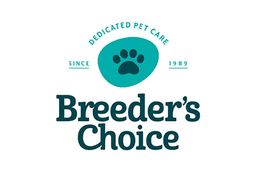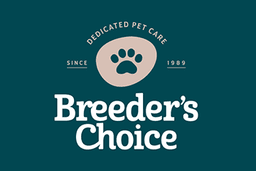Small but mighty, the Australian Silky Terrier is a little dog with a big personality. Originally developed in the late 1800s, breeders crossed the Yorkshire Terrier with the Australian Terrier to create a dog with the Yorkshire’s stunning silky coat and the Australian Terrier’s tough, spirited nature. The result? A confident, intelligent companion that’s both charming and fearless. Despite their refined appearance, these dogs have the heart of a true terrier: bold, energetic, and always up for adventure.
Silky Terrier Dog Breed Facts & Characteristics
| Dog Breed Facts & Characteristics | Details |
|---|---|
| Origin | Australia, 1800s |
| Also known as | Silky, Sydney Silky, Australian Silky Terrier |
| Bred for | Companionship, small vermin hunting |
| Size | Small; 23-26 cm in height |
| Weight range | 3-4.5 kg |
| Colours | Blue and tan, silver and tan, grey and tan |
| Life expectancy | 12-15 years |
| Coat | Long, fine, silky, low-shedding |
| Temperament | Intelligent, affectionate, alert |
| Exercise requirements | Moderate; enjoys playtime and walks |
| Best suited for | Families, apartment dwellers, active owners |
| Apartment friendly | Yes, but thrives with daily activity |
Personality
If the Silky Terrier had a motto, it would be: “Small in size, big in attitude.” These intelligent, confident dogs thrive on attention and will happily shadow their favourite human throughout the day, always keeping a watchful eye on their surroundings. Affectionate but independent, Silkies have a feisty terrier spirit and aren’t afraid to stand their ground. They make excellent watchdogs, though their enthusiasm for barking may need some training.
Social and outgoing, Silkies enjoy meeting new people but prefer to be in charge when it comes to other dogs. With proper socialisation, they can get along well with children and pets, but their strong prey drive means smaller animals are chase-worthy fun. Silkies may look like a fragile lapdog, but they’re far from delicate!
Exercise
Silky Terriers are active little dogs who need daily exercise to stay happy. They love going for walks, chasing toys, and exploring their surroundings. Around 30-40 minutes of activity each day will keep them fit and prevent boredom.
They also have a sharp mind and enjoy activities that challenge them. Agility courses, puzzle toys, and obedience training are great ways to keep them mentally engaged. While they’re happy to cuddle up on the couch, they’re not the type to laze around all day. These dogs like to stay busy.
Feeding
Silky Terriers may be small, but they have plenty of energy to fuel. A high-quality diet that supports their active lifestyle and keeps their coat shiny is ideal. Puppies need three to four small meals a day to support their growth, while adults do well with two balanced meals daily.
Since Silkies are known for their cleverness (and ability to charm their way into extra treats), portion control is important to prevent weight gain. Foods rich in omega-3 and omega-6 fatty acids can help keep their coat silky and healthy.
Grooming
Unlike most dogs, Silky Terriers have hair that closely resembles human strands in both texture and growth patterns. This means they need regular grooming to keep their coat looking its best. Their fine, silky hair is prone to tangles so daily brushing is ideal to prevent knots. If you prefer a lower-maintenance look, a professional trim can help keep things more manageable.
A bath every few weeks keeps their coat looking fresh, and regular ear cleaning, nail trimming, and dental care should also be part of their routine. Despite the upkeep, shed very little making them a good option for allergy-sensitive homes.
Common Health Concerns
Silky Terriers are generally healthy, but like all breeds, they have a few conditions to watch for.
- Patellar luxation: A common issue in small dogs where the kneecap slips out of place, sometimes requiring surgery in severe cases.
- Legg-Calve-Perthes disease: A hip joint disorder that can cause pain and limping, often requiring medical management.
- Dental issues: Small breeds are prone to dental problems, so regular brushing is essential to keep their teeth in top shape.
- Allergies and skin sensitivities: Some Silkies develop allergies, leading to itchy skin or ear infections. Regular vet check-ups help catch any issues early.
Did you Know?
The Australian Silky Terrier was one of the first homegrown breeds to gain international recognition? While Australia is famous for its working dogs like the Kelpie and Cattle Dog, the Silky Terrier stands out as a tough little hunter-turned-companion. Originally bred in Sydney to keep homes and farms free from vermin, these small but fearless dogs proved they were just as capable as their larger Aussie counterparts. Today, they are loved worldwide, but their roots remain proudly Australian.
Silky Terrier FAQs
How do you groom a Silky Terrier?
Use a fine-tooth comb or pin brush to prevent tangles, starting from the ends and working your way up to avoid pulling. A leave-in conditioner or detangling spray can help keep their coat smooth. Their hair grows continuously, so regular trims around the face and paws keep them neat. Keep an eye on their ears, as their longer hair can trap dirt and moisture, leading to infections.
Are Silky Terriers good family pets?
Yes! They are affectionate, playful, and loyal. They do best in families with older children who understand how to handle small dogs.
How much exercise does a Silky Terrier need?
Silkies have plenty of energy but don’t need long workouts. Around 30-40 minutes of daily activity, like short walks or interactive games, is enough to keep them happy and healthy.
Do Silky Terriers shed?
Very little. Their fine, human-like hair doesn’t shed much, but it does require frequent brushing to prevent tangles and matting.
Are Silky Terriers good with other pets?
They can be, especially if raised with them. However, their terrier instincts may make them bossy with other dogs, and smaller animals like rabbits or guinea pigs may trigger their prey drive.
Do Silky Terriers bark a lot?
Yes, they can be quite vocal, especially when they hear something unusual. Early training can help manage excessive barking.
Are Silky Terriers hypoallergenic?
While no dog is truly hypoallergenic, Silkies produce minimal dander and are often a good choice for allergy sufferers.
Can Silky Terriers live in apartments?
Yes, their small size makes them well-suited to apartment living, as long as they get daily walks and playtime. They enjoy being close to their owners, so they thrive in homes where they aren’t left alone for long periods.
Are Silky Terriers stubborn?
They can be! While intelligent and eager to please, they can be independent thinkers. Positive reinforcement and consistent training are key.
How much does an Australian Silky Terrier cost?
Silky Terrier puppies usually cost between $2,000 and $4,000 AUD from a reputable breeder. Adoption fees from rescues or shelters are typically lower, ranging from $300 to $800 AUD.



























